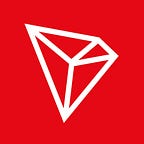As October approaches, with BTFS integrated into the world’s largest P2P network, BitTorrent, BTFS has completed its official launch of the mainnet, representing a new starting point for BTFS and a big step towards the integration of BitTorrent ecosystem.
Over 3000 new BTFS nodes have been added to BT Client during this roll-out, bringing BTFS one step closer to becoming the world’s largest and first scalable decentralized storage system.
Moreover, BTFS now supports two major features: the first feature, removal of files and directories, means users can delete files on their local nodes via the command line. The second feature allows users to import a TRON private key, a 12-word BIP39 seed phrase, or generate a seed phrase to initialize BTFS nodes in a secure and convenient way. After that, users can upload, transfer and download files.
BTFS Advantages:
Reliability: BTFS uses a decentralized service provider to control the server, leaving no room for any disruptions on the stored files from local interruptions or denial-of-service attacks.
Lower Price: unlike other platforms like EOS where storing 1 MB data might cost over $150, it’s very cheap to store files on BTFS, which significantly lowers the storage and maintenance cost.
Greater Decentralization: BTFS provides a more flexible storage service while guaranteeing file security by safeguarding users’ data in a decentralized way.
Advanced Incentive Mechanism: by introducing a token economy, BTFS will incentivize users to share more storage space and retrieve more files, facilitating greater value exchanges of stored files in the network ecosystem.
The official launch of BTFS mainnet signals that BTFS has delivered on its plan for Q3 2019 and is on track to further integrate with BitTorrent, that a truly decentralized storage system available to DApp developers has been implemented, and that a truly scalable, content-trackable and permanent distributed network is right on the horizon.
BTFS Roadmap
In Q3 2019, the mainnet will be launched for public access and power all TRON DApps requiring a decentralized storage network. Preliminary developers’ tools will be available, and the platform will have a number of outstanding popular DApps up and running.
In late 2019, the BTT token will begin to be integrated with the BTFS network as an incentive to create a healthy, fair, and efficient file sharing and storing marketplace. Also, a comprehensive toolset will be launched while the BTFS Accelerator cultivates dozens of BTFS DApps, leading the BTFS community to grow into one of the largest and most active in the industry.
This integration is expected to be completed in 2020. Meanwhile, BTFS will also be integrated with BitTorrent to benefit over 100 million users with its network services. With this integration, users’ files will be stored in BitTorrent Clients deployed in every corner of the world with the high-level distribution.
Moreover
- As a highly decentralized storage network, BTFS allows users to safely store their files and be sure that they will never be lost.
2. As the Host (users who contribute their idle hard disk space) in the BTFS network, users can earn substantial BTT rewards while ensuring the security of their computers;
3. Renter (users who purchase storage space) in the BTFS network can enjoy:
● Low storage price
● Flexible storage to harness idle spaces in your storage plan
● Anonymous file storage at your disposal: every Host in the network hosts only a small part of your file, ensuring storage security.
● A one-stop solution with BitTorrent client that allows you to both download and store files
4. As developers of both DApps and traditional apps, BTFS offers users affordable, truly decentralized storage solutions, convenient BTFS API interface, and Smart Contract deployment, etc.
5. Users can use the wallet in BitTorrent client to use and earn BTT with ease
6. Depending on local network conditions, users can, in theory, upload and download much faster than with traditional cloud services
The roadmap is as follows:
2019 Q4
● Launch a comprehensive toolset
● Launch BTFS Accelerator
● Launch dozens of BTFS DApps
● Expand BTFS community
2020 Q1
● Wrap up BTT token integration
● Launch a BitTorrent-integrated version
About BTFS
BitTorrent File System (BTFS) is both a protocol and a network application that provides a content-addressable, peer-to-peer mechanism for storing and sharing digital content in a decentralized file system. In the meantime, BTFS provides a foundation for Decentralized Applications, known as DApps.
About BitTorrent
The BitTorrent Protocol is the largest decentralized protocol in the world with over 1 billion users. The Protocol was developed and was since maintained by BitTorrent company. Among its various forms of implementations, BitTorrent and μTorrent (often referred to as “utorrent”) remain the most popular. The BitTorrent Protocol has reached a strategic partnership with the TRON Protocol, making TRON the world’s largest decentralized ecosystem and BitTorrent the world’s largest distributed application. On July 24, 2018, TRON completed the acquisition of the P2P downloading network BitTorrent and all its products.
About TRON
TRON is dedicated to building the infrastructure for a truly decentralized Internet. The TRON Protocol, one of the largest blockchain-based operating systems in the world, offers high-scalability, high-availability, and high-throughput support that serves as the foundation for all decentralized applications in the TRON ecosystem. The Protocol also uses an innovative, pluggable smart contract platform to improve compatibility with Ethereum smart contracts.
On July 24, 2018, TRON acquired BitTorrent Inc., an Internet technology company based in San Francisco. The distributed technology designed by BitTorrent Inc. is smart, highly scalable, and keeps creators and consumers in control of their content and data. More than 170 million people use BitTorrent products every month. BitTorrent Inc.’s protocol drives 40% of the world’s Internet traffic every day.
